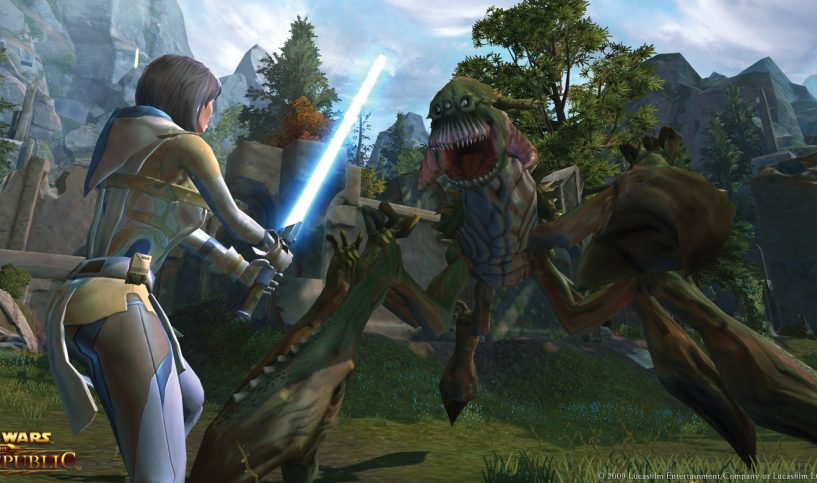By Jaye Sonia
I don’t think it matters which game we play, be it the brand new Star Wars: The Old Republic, Skyrim, Battlefield 3, or the venerable World of Warcraft – games take up a lot of our time. With a host of available options, we spend more of our “gaming” time choosing how to best optimize our playing experience. This means sorting through a host of class options, weapon unlocks, vanity achievements, professions (and the time-consuming ‘farming’ that goes along with them in most MMOs), and any number of other options a particular game offers.
Of course, if we have multiple characters – either in a single game or across a series of games – we find the demand on our time multiplied accordingly. Then, we’re faced with a choice – do we game more or do we split our time. Assuming we have a healthy addiction to gaming (and by healthy, I mean we still interact with others outside of gaming), we’re forced to step away from the game and split our time.
This is where using discernment in our gaming life comes into play (and yes, the pun is very much intended).
Socially, we’re generally taught not to discriminate. It’s frequently seen in a negative light – the sure sign of a small mind. But it’s also a tool that allows us to make choices that affect our lives, day-to-day. Do we buy the new phone? Do we invest time and money into the Star Wars or do we stick with World of Warcraft (or do we do both)? Do we choose to level our holy paladin, our Imperial agent, or our engineer? That’s a lot to decide, but in deciding – and making that decision a concrete one – we definitely enhance our playing experience.
I think it’s wise to point this out – especially to newer gamers (or those with noticeably short attention spans – cough, cough…. this would be Mr. Frostfire) – the more characters you build, the harder it is to achieve a level sufficient to really enjoy end game content. This may not be a big problem with single player games (like Dead Island or Skyrim), but it definitely comes into play in most of the popular MMOs. Of course, with the increasing complexity of games in general, this isn’t going to change. If anything, the open content and available options we love, as gamers, will only increase. So, unless you’re planning on creating more time in the day, you’re going to have to ration the time you do have.
I think the best way we can do this is by, first, deciding which games hold the most value to us as gamers.
If you’re like me, you’ve got a little more to sort through. I like games in general (not to mention writing about them), so I have a little more to juggle. You may have other hobbies (like paintball, driving your parents crazy, or racing dune bikes through the desert) that demand an equal amount of time. If so, you understand the dilemma.
So how do we pick?
I think the best first step is to identify how much time you can reasonably dedicate (without our mothers calling in for a search party). I think 1-2 hours a day is reasonable, more if you limit the days you play. I certainly wouldn’t play more than 14 hours a week (but hey, that’s me).
Secondly, I’d identify where my current passion is. If you’re in love with the Star Wars universe, for instance, you’re probably going to choose to play Star Wars: The Old Republic and focus on that. Once you know that, it should be easy enough to pick your faction (and of course, play a Sith on Niman with the rest of us… hehehehehe).
Thirdly, I’d play each class a little to get a feel for what character or storyline fits your play style the best. But before you do this, make sure you set your own level cap. Know that, for instance, you’re going to choose by level 7. Once you get there, it’s easy enough to move forward with the class that fits the best.
Then, focus on that character. Pour yourself into the story, study the class, and make the most of it. When you do need breaks, look to simpler games (console games with a pause button are a great choice) to fill the gap. You maintain a level of variety while keeping your skills sharp in other games (like your favorite FPS).
But, and this is the most important, you determine just which games are the most important to you. This keeps your gaming in perspective and allows for an almost critical approach to play – something all of us can benefit from.
Until next time, get your game on!








